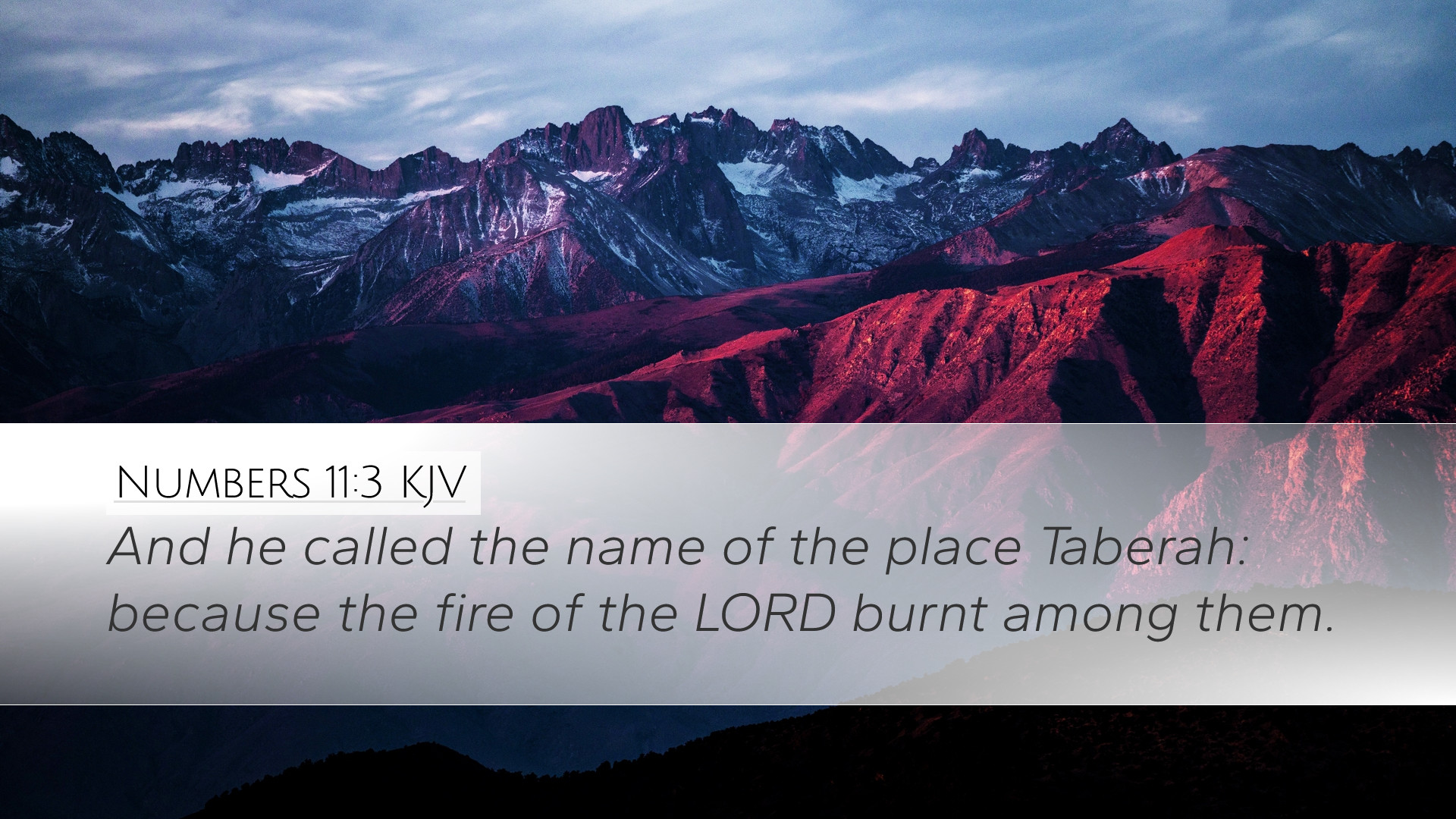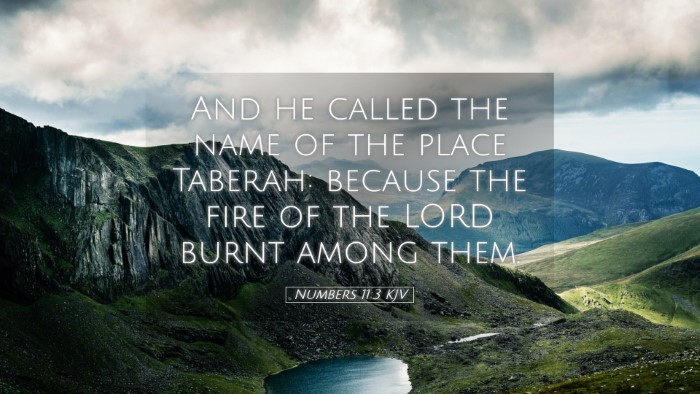Commentary on Numbers 11:3
Bible Verse: "And he called the name of the place Taberah: because the fire of the Lord burnt among them."
Introduction
Numbers 11:3 recounts a significant event in the wilderness wanderings of the Israelites. This event is marked by the name Taberah, signifying the intense anger of the Lord against the people for their complaints. The following commentary synthesizes insights from traditional public domain sources, illuminating layers of meaning for students, pastors, theologians, and Bible scholars.
Contextual Background
This verse occurs after the Israelites have begun to express discontent with their circumstances. They have been provided with manna from heaven, yet they crave the foods of Egypt. This longing, along with their complaints, sets the stage for divine judgment, leading to the naming of the place "Taberah." The etymology of the name reflects both the physical fire that consumed part of the camp and the figurative fire of God's displeasure.
Historical Context
Historically, the Israelites are in a transitional period, moving from slavery in Egypt to the Promised Land. Their journey is marked by numerous trials, which reveal their spiritual condition. This verse serves as a pivotal marker of their relationship with God during their wandering.
Theological Significance
The theological undertones of this passage highlight God's holiness and justice. The fire that consumes signifies divine judgment, indicating that God responds to disobedience and rebellion with rightful retribution.
Verse Analysis
1. "And he called the name of the place Taberah"
Matthew Henry notes that the naming of places is significant in biblical accounts, reflecting moments of divine intervention or judgment. The term "Taberah" signifies "burning" or "to burn," indicating that this was not just a geographical designation but a poignant reminder of God's fiery presence against sin and complaint.
2. "because the fire of the Lord burnt among them."
Albert Barnes delves into the nature of the fire mentioned here, suggesting that it was not merely a physical phenomenon but an emblem of divine displeasure. This fire symbolically represents the consequences of provoking the Lord through ingratitude and rebellion. It serves as a warning for future generations about the severity of disregarding God's provisions and commandments.
Adam Clarke further expands upon this notion of divine fire, suggesting that it indicates both judgment and purification. The fire serves a purpose: to cleanse the people and to enact justice where it is deserved, fostering a deeper reverence for God among the Israelites.
Lessons and Applications
- Understanding God's Justice: This passage teaches about the seriousness with which God addresses sin. It serves as a reminder for pastors and theologians to communicate the balance between God's love and His holiness.
- The Danger of Complaining: The Israelites' complaints prompt the fire of judgment. This encourages believers today to reflect on their attitudes: are we grateful for God's provision, or do we fall into the trap of discontent?
- God's Presence: The fire is a direct manifestation of God’s presence among His people. This serves as a reminder that God is active in our lives, both in blessing and in imparting discipline.
- Implications for Community: The communal aspect of Israel's sin reveals that individual actions impact the wider community. Leaders within the church must guide and shepherd their congregations to remain focused on God's faithfulness.
Conclusion
The incident at Taberah reminds believers of the immediacy of divine response to human actions. For the Israelites, the burning of Taberah represented both judgment and an opportunity for growth. For modern readers, it is a call to introspection regarding their relationship with God, an invitation to acknowledge His sovereignty, and a prompt to cultivate a spirit of gratitude.
Final Reflection
In concluding our examination of Numbers 11:3, we see the profound implications it holds for believers today. Through the historical, contextual, and theological reflections presented, scholars and students alike are summoned to engage deeply with the text, cherishing the balance between God's grace and justice and striving for a heart of gratitude amid life's trials.


